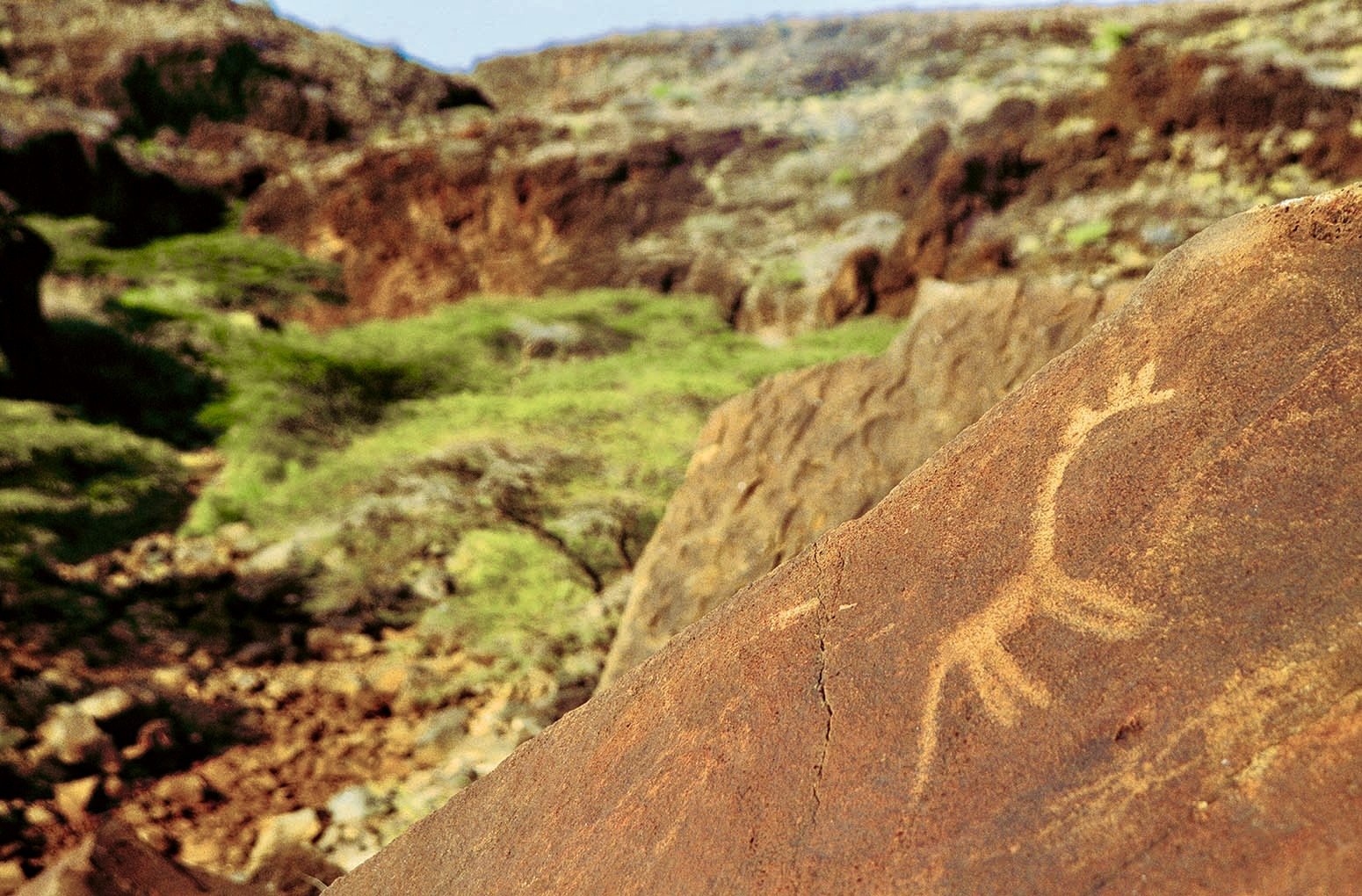Prospero to digitise Kenyan Rock Art as part of a VR theatre & museum education project in Nairobi’s poorest schools
C&T, Prospero and the Royal Central School of Speech and Drama are to collaborate with the Trust for African Rock Art (TARA) and National Museum Kenya on a ground breaking new project celebrating Kenya’s historic Rock Art.
In archaeology, rock art is human-made markings placed on natural surfaces, typically vertical stone surfaces. A high proportion of surviving historic and prehistoric rock art is found in caves or partly enclosed rock shelters; this type also may be called cave art or parietal art. A global phenomenon, rock art is found in many culturally diverse regions of the world including in Kenya. This project will use Prospero’s unique fusion of drama and technology to bring these historic, remote art works to a whole new generation of young Kenyans, living in some of the poorest communities in Nairobi and then to young people in schools in England.
C&T already has a well developed programme of work in Korogocho, a slum district of Nairobi, where Prospero has been digitally facilitating drama work for over ten years. C&T works with local artists and community workers in some of the poorest schools, known as Informal Schools. Now, together with researchers from Royal Central School of Speech and Drama in London, the National Museum of Kenya and TARA, Prospero will connect these schools in an innovative new project to bring the riches of these Rock Art sites to life in vibrant, creative ways.
Capturing, dramatising and digitising Rock Art
In January a team of Prospero applied theatre practitioners and technologists along with researchers from Royal Central School of Speech and Drama, leading Kenyan archaeologists from the muserum and local artists will visit a number of rock art sites across northern Kenya. In each of these locations Prospero will capture 360 immersive video and binaural sound recordings of these landscapes. These materials will then by curated into Prospero itself, creating a digitally facilitated participatory drama experience exploring the history and significance of these sites. This VR experience will be packed with mysteries to unravel, tasks to solve and challenges to undertake, all mixing accessible tech with drama techniques. Whilst playful, this experience will be packed with powerful learning content from these remote sites, opening up the potential of these ancient sites through the latest digital technology and the transformational processes of drama, and because this is all created through C&T’s Prospero platform, it means anyone with access to the internet will be able to use these resources, enabling this work to be accesible to children in some of Kenya’s poorest schools in Korogocho, Nairobi, as well as around the world.
An Afgaba Giraffe engraving
Work in Nairobi’s informal schools
Korogocho is a slum settlement on the outskirts of Nairobi, home to around 100,000. Poor sanitation, lack of clean water and healthcare along with high rates of crime and low levels of access to education typify like in Korogocho. C&T has. been working in the settlement for over ten years and have developed strong partnerships with local artists and community workers. Informal schools provide basic educational provision: they are, cheap, fee paying schools that provide daily tuition in often-make shift premises with little or no books or resources and that fill a gap where state school provision is not available to local families.
The rock art programme will focus on supporting learners in these schools. Once the development work in Prospero is completed, local theatre practitioners and community workers will take the interactive learning materials into these schools across Korogocho with the aim of introducing children to these historic cultural sites and their significance virtually; locations they would be very unlikely to ever visit in person.
To enable this work to happen C&T and Central will provide local artists with a touring a rig of VR headsets linked to Prospero via mobile data connections, meaning any school will be able to access these experiences. Drama workshop leaders will facilitate an in-person programme of workshops alongside the VR experience, creating a blended learning experience typical of Prospero.
The aim will be two fold. Firstly, to introduce these children to aspects of Kenya historic cultural sites, locations they would be very unlikely to ever visit in person. Secondly, to raise awareness of the impact of climate change on these historic sites.
A street in Korogocho, near an informal school.
And then Rock Art VR in England
This is just one aspect in C&T and Central’s ongoing collaborative research exploring how drama and digital technology can be used to animate heritage sites. Another exploratory project is currently underway at the National Trust’s Croome Court in Worcestershire, UK, using Prospero’s GPS functionality. Discussions are underway as to how the rock art programme could be featured in the National Museum of Kenya, who’s Archaeology Department are supporting the project. Plans are also in place to make the VR and drama experiences available to young people in the UK, where Rock Art is taught in many schools, collaborating with schools in our home city of Worcester and then extending this across the West Midlands any then the rest of England.
To find out more about Prospero in Kenya, our heritage work, or our developing partnership with Royal Central School of Speech and Drama contact us. English schools interested in the UK roll out should contact us to, to reserve your place.
In line with its efforts to create a sustainable practice, C&T carbon offsets the impact of its international work, investing in a project to plant trees in Kenya.


